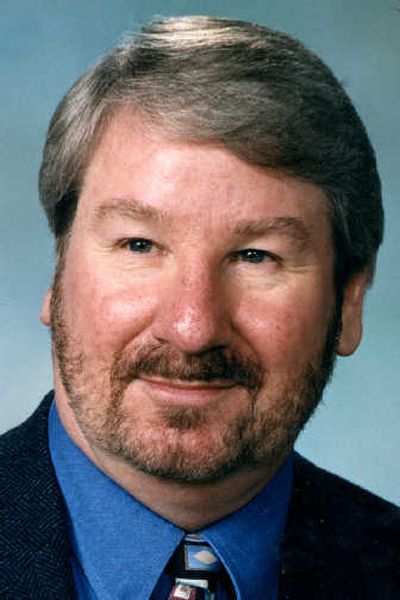District 3 legislators score victories on water, health

OLYMPIA – For the three state lawmakers representing central Spokane in the Statehouse, the 2008 legislative session was a balance of big-picture ideas and small, local details.
Senate Majority Leader Lisa Brown, D-Spokane, teamed up with the governor on a landmark bill to release billions more gallons of water from Lake Roosevelt. She also got several small increases in state money for Spokane-area children’s health programs.
Fellow Spokane Democrat Rep. Timm Ormsby sponsored a similar version of the water bill in the House – as well as a weatherization tax break aimed at Spokane Neighborhood Action Programs, among others.
Rep. Alex Wood, D-Spokane, had a more modest year. His biggest victory: a bill to help small distilleries.
District 3 runs roughly from Francis Avenue south to 17th Street, and from West Spokane east to Havana Avenue.
Here’s how the three lawmakers fared this session, which ended in mid-March:
Rep. Timm Ormsby
A cement mason and president of the Spokane Regional Labor Council, Ormsby is in his sixth year in the Statehouse. He’s gained clout, partly because he’s now the No. 2 Democrat on the committee that weighs local requests for state construction dollars. In this year’s version: money for a Spokane YMCA/YWCA project, a local air museum and the Mobius science center.
Angered by the Department of Ecology’s treatment of a dissenting scientist in Spokane, Ormsby spearheaded a proposal to expand whistleblower protection in such cases. (Ecology denies any wrongdoing. The scientist resigned last summer.)
But Ormsby had two major disappointments this year. For the second year in a row, lawmakers balked at his quest to allow parents of adult children to sue when a child is wrongfully killed, such as through medical negligence. As things stand now, parents are generally barred from suing if the child is over 18.
Ormsby was also disappointed by the failure of his House Bill 2848. It would have set up accounts to which developers could donate their tax exemptions to help affordable housing projects. It wasn’t just theoretical; Ormsby said he was contacted by a community-minded Spokane developer who wanted to do this.
“I just thought that it was such a great idea that it would sail through here like a greased pig,” he said. In retrospect, he said, he should have done more to explain it to fellow lawmakers.
“It got into trouble late and I couldn’t save it,” he said.
Locally, the weatherization bill (HB 2847) was a victory in a slim-budget year.
“It meant $40,000 to SNAP,” he said, “and they can weatherize eight to 12 homes for that.”
Rep. Alex Wood
A former talk-radio host who’s been in the Legislature for a dozen years, Wood also faced some disappointments this year.
His HB 2882, to require labels detailing lead content on products, was watered down, and then it died.
“We ended up exempting out more than we would have affected,” he said. “We’ll try again next year.”
But he was pleased that his HB 2959 passed. It dropped the state licensing fee for small liquor distilleries from $2,000 to $100. It also allows winery-like tastings and on-site sales of the liquor. The bill included a provision aimed at helping local farmers: at least half the raw materials must be grown in Washington.
Wood also got a couple of technical-fix bills through, including one involving horse racing and another regarding the state’s Lemon Law for used autos. On the construction budget side, he also helped push for the $1.1 million for the science center.
Sen. Lisa Brown
A Gonzaga University associate professor first elected to the House in 1992, Brown is one of the two most powerful lawmakers in Olympia. (The other is House Speaker Frank Chopp, D-Seattle.)
It was a good session, she said, despite a slowing economy.
“We got a lot done for such a short period of time,” she said.
The $306 million supplemental state budget included more money for education, affordable housing and mental health programs, including $2.3 million more for Spokane’s regional support network. Brown and other local lawmakers also backed the efforts of several Spokane mothers to win millions more dollars for school library programs.
Brown also pushed hard this year to set up a new program that would provide a small state match for the federal Earned Income Tax Credit for low- and moderate-income people. About 350,000 Washingtonians qualify, including about 1 out of 5 people in central Spokane. The state checks would average $85 to $170, depending on what lawmakers decide.
When those checks would come, however, depends on how the state budget looks next year. It could be 2010 or later. Republican critics say the state can’t afford the tens of millions of dollars the program would cost.
Among Brown’s bills that didn’t make it: SB 6868. It would have allowed Spokane County to force mobile home parks over a sole-source aquifer to connect to a sewer system, if available. Brown said it would have protected drinking water; critics said safeguards already exist and the change would hurt affordable housing.
Brown also worked several local items into the budget. Among them: more money for cleft palate surgery for children, $100,000 for a fetal alcohol syndrome program, and $100,000 for Spokane’s Northwest Autism Center.